Free calls to the bank from anywhere in the world or getting rid of 8-800 numbers
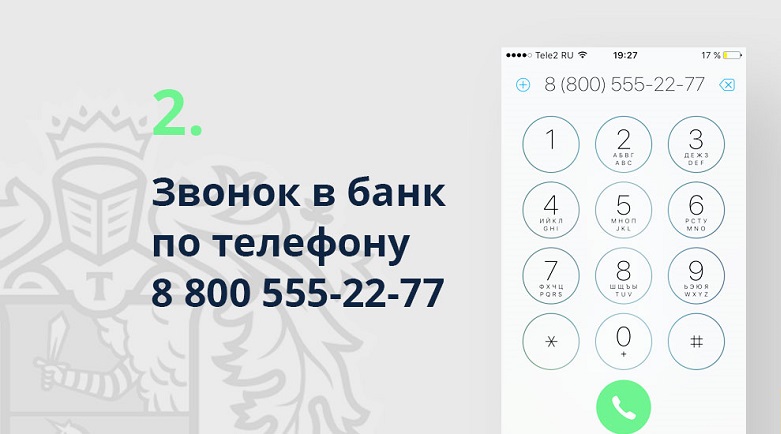
A few years ago I got into a not very pleasant situation on a trip abroad - the bank blocked my payment card.
I usually do not take the local currency on a trip, but take it off the card as needed at ATMs, but this time the bank’s antifraud system, which analyzes the use of the card and blocks it during suspicious activities (for example, when transactions are too frequent in another country and for the mass of other parameters) apparently was more rigidly tuned.
To resolve this situation, it was necessary to call the bank on an international number (i.e., paid to the user), since the toll-free numbers of the bank (free in the country of the bank that issued the card) are not available from abroad.
But usually I buy a local SIM card in the host country and do not connect roaming - as a result, I ended up in a foreign country without cash, with a blocked card and without an opportunity to make an international call.
In principle, any other person could be in the same situation if, for example, a wallet with money and documents was stolen from him, with the only difference being that in such a case you need to call the bank even faster to block the card.
Then the idea was born of the service of free calls for users from abroad to banks, insurance companies, etc. - so that any person could, using free Wi-Fi or another available network, make a call back home and solve their problems without spending money on connection
Now this feature is implemented in M1 Messenger .
It’s easy to use - you need to download and install an instant messenger (register without a phone number) and then find the required bank in the search bar:
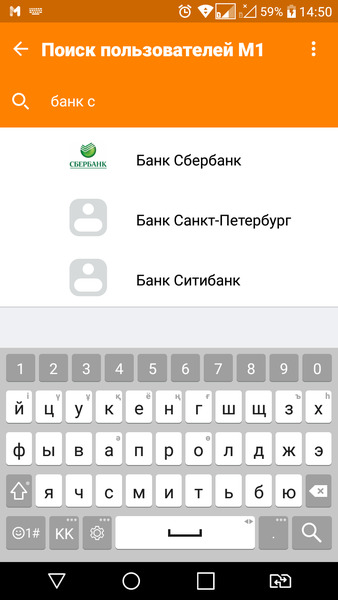
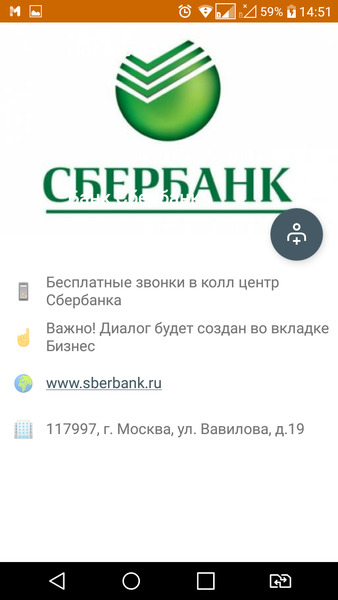
Next, add to the bank’s bot and after authorization, calls to the bank’s call center are immediately available:
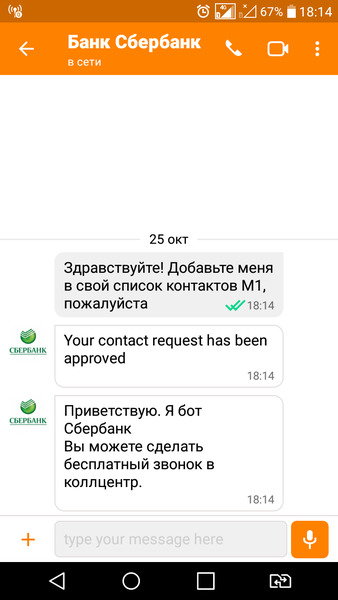
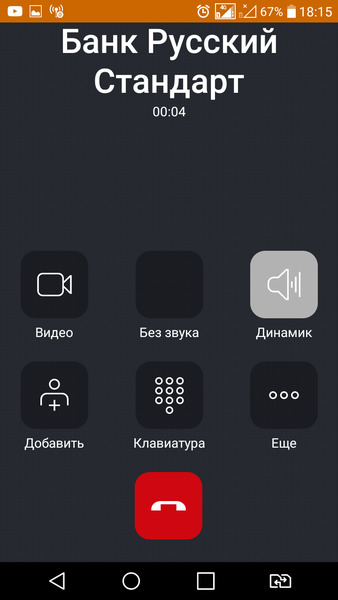
Currently 20 Russian banks are connected You can make calls to all of them for free from anywhere in the world:
- PJSC Sberbank
- VTB Bank
- Gazprombank
- Bank Otkritie FC
- ALFA-BANK JSC
- Rosselkhozbank JSC
- NCC Bank
- UniCredit Bank JSC
- Promsvyazbank PJSC
- PJSC ROSBANK
- JSC Raifa yenbank "
- PJSC" Moscow Credit Bank "
- PJSC" Bank "Saint Petersburg"
- JSC AB "RUSSIA"
- JSC "Bank Russian Standard"
- PJSC "AK BARS" BANK
- Nordea Bank
- Public Joint-Stock Company National Bank "TRUST"
- PJSC "BANK URALSIB"
- JSC CB "CITIBANK"
- Bank Tinkoff No.
8 -800 (Toll Free) or how telephonists make money by shaking the air.
All users know that calls to 8-800 are free for them, but few know what's going on beyond that gratuity.
In fact, the owner of such a number pays for each call from the user and pays much more than if the user paid for his outgoing call.
A call costs the owner 2-3 times more expensive.
In addition, there is a one-time installation fee per room, for the number of lines in the pool 8-800 (the number of simultaneous calls), monthly subscription and monthly payment.
If the call is received from a mobile phone, the payment for an incoming call is even higher.
It is also worth noting that such numbers are not available from abroad and, although they are called non-geographical, are in fact limited to the territory.
All this is done with the sole purpose of making the call free for an ordinary user.
Such care was relevant many years ago, but now, with the advent of instant messengers and free Internet conversations, such numbers are anachronism.
In addition, it is inconvenient - the user needs to find this number somewhere, check if he dialed it correctly from the product label or card, etc.
You cannot send a message, a picture, etc. to such a number.
If the operator asks where you are, then you cannot simply send your location, as you would have done using a regular instant messenger.
Instead, we propose another way - a user in the search for M1 Messenger finds a company (bank, institution, etc.) by name and immediately makes a call and such a call lands either in an office PBX or call center, i.e. existing infrastructure.
Connecting such a letter identifier to a PBX or call center is as easy as connecting any virtual number.
A bot can be a bonus that can provide the most frequently requested information with text or multimedia messages - send a picture, send a location, etc.
And in more complex cases, the user can make a call to communicate with a live operator.
The user does not need to memorize or write down such a number - it is always in the directory and is located by keywords.
Also, a business can communicate via such a channel with the user - send important information that would be useful to the consumer.
And on the other hand - the user can, if such messages / calls are intrusive to block such communication at any time.
